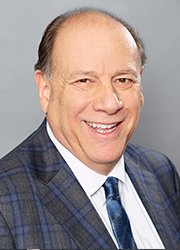As many hotel owners know, both Title III of the Americans with Disabilities Act (ADA) and California law mandates that all public accommodations–including virtually all hotels and inns–remove architectural and communication barriers, modify their policies and procedures, and provide other auxiliary aides and accessible services. But these requirements can be difficult to understand even for the most experienced lodging owners. In particular, many of our hotel clients struggle to define what “auxiliary aides and services” imply for their business and how they can comply with federal ADA standards when certain extreme situations occur.
Take for example, a recent suit: A paralyzed guest filed a federal lawsuit against an Akron, Ohio hotel after he was “banned” for accidentally soiling his linens because his colostomy bag failed while he was asleep. Though he paid for the linens and left the maid a hefty tip, he was told by a night desk clerk that he was “banned for life” by the hotel manager when he attempted to stay at the hotel again. He is now suing the hotel under the Americans with Disabilities Act for discrimination against the disabled.
Was the hotel manager’s decision to “ban” the disabled guest legally justified? Or, should the hotel have rightfully provided special personal services? This is not an easy question to answer, but here are some guidelines to clarify ADA boundaries.
The ADA requires public accommodations to provide auxiliary aides and services to disabled guests; however, it specifically does not require a public accommodation to provide customers, clients or participants with personal devices such as wheelchairs, and individually prescribed devices, such as prescription eyeglasses or hearing aides, or services of a personal nature, including assistance in eating, toileting or dressing. Does this umbrella of personal assistance include cleaning up a disabled guest’s biological waste? Not only have employees not been generally trained to handle human waste, but the situation also presents hazardous public health issues for staff and other guests.
While this case is extreme, it is common for hotel guests, including those who are disabled, to have needs that go beyond the typical lodging services provided for guests in general. It is important to remember that hotels are not hospitals or nursing homes. Hotels have a responsibility to individuals with disabilities to ensure that they receive the privileges that the facilities offer as fully as possible, but not when the need fundamentally alters the nature of the goods, services, facilities, privileges, advantages, or accommodations being offered or places an undue burden on hotel staff.
On the other hand, the types of auxiliary aides and services that a hotel should provide include: telecommunications devices and services for deaf or hearing impaired guests, a means of decoding captions for individuals with impaired hearing in places of lodging that provides televisions in five or more guest rooms, an effective method of making visually delivered materials available to individuals with visual impairment, and services that ensure effective communication with disabled individuals.
The level of service a hotel should provide to comply with the ADA can be unclear. Combined with weaving your way through federal and state laws, compliance can turn into more of a maze than a hotel owner would expect. The cost to lodging operators in litigation each year is many millions of dollars. Now is the time to get to know your hotel’s policies and procedures. Call an ADA lawyer to make sure your hotel is in compliance.
 Martin H. Orlick is one of the top ADA defense lawyers in the country. He has helped hotels, restaurants, retailers, shopping centers, banks and other commercial property owners defend more than 600 ADA cases. In addition to defending lawsuits and governmental investigations, Marty’s team of ADA specialists focuses on enterprise-wide ADA compliance and litigation prevention, including facilities, website and operational compliance. Marty is the Chair of JMBM’s ADA Compliance & Defense Group, a Partner in JMBM’s Real Estate Group, and a member of the American College of Real Estate Lawyers (ACREL). For more information about ADA compliance and defense, contact Marty Orlick at 415.984.9667 or morlick@jmbm.com.
Martin H. Orlick is one of the top ADA defense lawyers in the country. He has helped hotels, restaurants, retailers, shopping centers, banks and other commercial property owners defend more than 600 ADA cases. In addition to defending lawsuits and governmental investigations, Marty’s team of ADA specialists focuses on enterprise-wide ADA compliance and litigation prevention, including facilities, website and operational compliance. Marty is the Chair of JMBM’s ADA Compliance & Defense Group, a Partner in JMBM’s Real Estate Group, and a member of the American College of Real Estate Lawyers (ACREL). For more information about ADA compliance and defense, contact Marty Orlick at 415.984.9667 or morlick@jmbm.com.
 ADA Compliance and Defense Blog
ADA Compliance and Defense Blog

